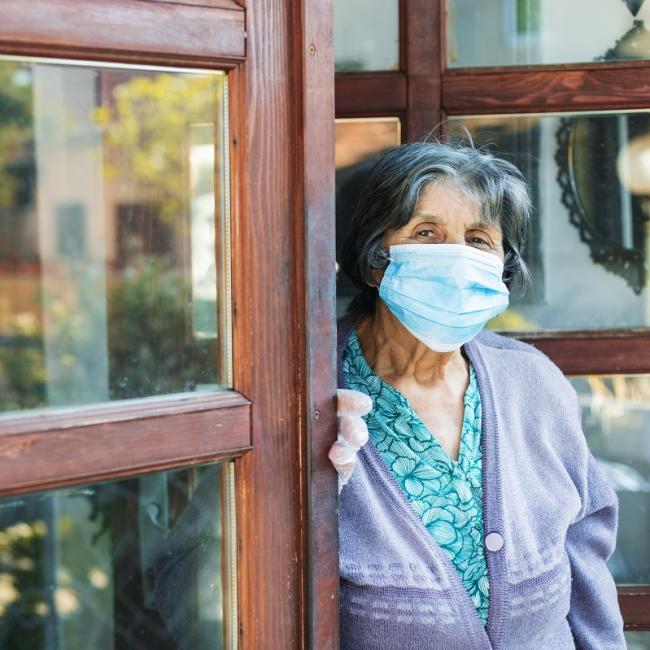Social Isolation and Loneliness during COVID-19 Lockdown: Associations with Depressive Symptoms in the German Old-Age Population
Int J Environ Res Public Health. 2021 Mar 31;18(7):3615. doi: 10.3390/ijerph18073615.
ABSTRACT
Lockdowns during the COVID-19 pandemic increase the risk of social isolation and loneliness, which may affect mental wellbeing. Therefore, we aimed to investigate associations between social isolation and loneliness with depressive symptoms in the German old-age population during the first COVID-19 lockdown. A representative sample of randomly selected individuals at least 65 years old (n = 1005) participated in a computer-assisted standardized telephone interview in April 2020. Sociodemographic data, aspects of the personal life situation, attitudes towards COVID-19 and standardized screening measures on loneliness (UCLA 3-item loneliness scale), depression (Brief Symptom Inventory/BSI-18), and resilience (Brief Resilience Scale/BRS) were assessed. Associations were inspected using multivariate regression models. Being lonely, but not isolated (β = 0.276; p < 0.001) and being both isolated and lonely (β = 0.136; p < 0.001) were associated with higher depressive symptoms. Being isolated, but not lonely was not associated with depressive symptoms. Thus, the subjective emotional evaluation, i.e., feeling lonely, of the social situation during lockdown seems more relevant than the objective state, i.e., being isolated. Normal (β = -0.203; p < 0.001) and high resilience (β = -0.308; p < 0.001) were associated with lower depressive symptoms across groups. Therefore, strengthening coping skills may be a support strategy during lockdowns, especially for lonely older individuals.
PMID:33807232 | PMC:PMC8036754 | DOI:10.3390/ijerph18073615





